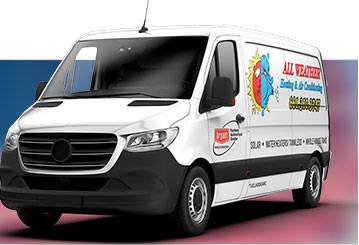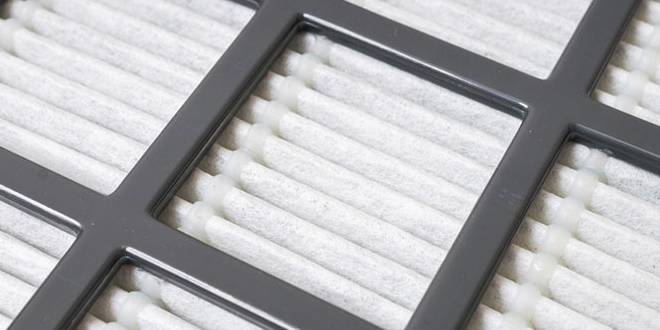
Maintaining your HVAC system is crucial for ensuring comfort in your home, and one of the simplest yet most important tasks is replacing your air filter. This small component plays a significant role in maintaining indoor air quality and keeping your HVAC system running efficiently. In this guide, we’ll delve into why air filter replacement matters, how often you should do it, and how to replace your air filter step-by-step. Plus, we’ll provide tips on maintaining your HVAC system to avoid costly repairs and ensure it operates at peak performance.
Let’s get started on understanding why air filter replacement is essential for your health and home comfort.
Why Air Filter Replacement Matters
Regularly replacing your air filter is essential for several reasons, all of which contribute to a healthier home environment and a more efficient HVAC system.
Health Benefits
Air filters trap dust, pollen, pet dander, and other airborne particles, preventing them from circulating throughout your home. A clean air filter ensures better indoor air quality, reducing allergens and pollutants that can cause respiratory issues and allergies. This is especially important for households with children, elderly family members, or anyone with asthma or allergies.
HVAC System Efficiency
A clogged or dirty air filter makes your HVAC system work harder to push air through, which can lead to increased energy consumption and higher utility bills. By replacing the air filter regularly, you help your system run more efficiently, reducing the strain on the components and potentially extending the lifespan of your unit.
Cost Savings
Neglecting air filter replacement can lead to more significant issues down the line. A dirty filter can cause your HVAC system to overheat or freeze up, resulting in costly repairs. Regular maintenance, including filter replacement, helps prevent these problems and saves you money in the long run.
By understanding these key benefits, you can see why regular air filter replacement is a crucial part of home maintenance.
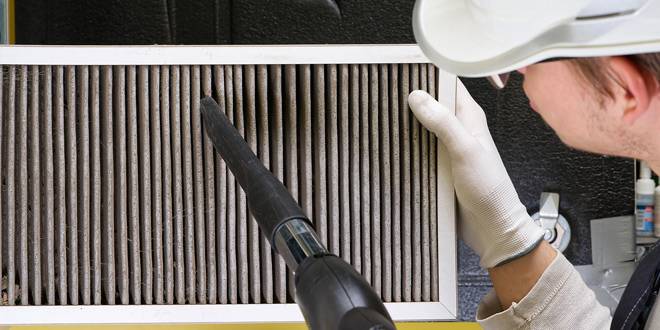
How Often Should You Replace Your Air Filter?
Knowing when to replace your air filter can vary based on several factors. While a general rule of thumb is to check and replace your air filter every 1-3 months, specific conditions in your home may require more frequent changes.
General Guidelines
- Standard Homes: For an average household without pets, allergies, or other special considerations, replacing the air filter every 90 days is usually sufficient.
- Homes with Pets: If you have pets, their fur and dander can quickly clog up your air filter. In such cases, it’s recommended to replace the filter every 60 days.
- Allergy Sufferers: For households with members who have allergies or respiratory conditions, changing the filter every 20-45 days can help maintain cleaner air and alleviate symptoms.
Factors Influencing Replacement Frequency
- Number of Occupants: More people in the home mean more dust, dirt, and dander, necessitating more frequent filter changes.
- Air Quality: Homes in areas with high pollution or dust levels may require more frequent filter replacements to maintain indoor air quality.
- HVAC System Usage: During peak seasons, such as summer and winter, when your HVAC system is running more frequently, you may need to replace the filter more often.
By taking these factors into account, you can tailor your air filter replacement schedule to ensure optimal air quality and system performance.
For more information on maintaining your air conditioning system, check out our Vacaville AC Maintenance page.
Signs Your Air Filter Needs Replacing
Even with a general replacement schedule, it’s important to recognize specific signs that indicate your air filter needs to be changed sooner rather than later. Here are some common indicators that your air filter requires immediate attention:
Common Indicators
- Visible Dirt and Dust: If your air filter appears gray and covered in dust or debris when you inspect it, it’s time for a replacement.
- Increased Allergy Symptoms: If you or your family members are experiencing more frequent or severe allergy symptoms, it could be due to a clogged air filter failing to trap allergens effectively.
- Reduced Airflow: If you notice weak airflow from your vents, it might be a sign that the air filter is obstructing the passage of air through your HVAC system.
- Unusual HVAC System Behavior: Strange noises, such as whistling or excessive cycling on and off, can indicate that your air filter is putting undue strain on the system.
Potential Issues of Not Replacing in Time
Neglecting to replace your air filter can lead to several problems, including:
- Decreased System Efficiency: A dirty filter makes your HVAC system work harder, leading to higher energy consumption and increased utility bills.
- Increased Wear and Tear: Continuous operation under strain can cause components to wear out faster, leading to more frequent repairs and a shorter system lifespan.
- Poor Indoor Air Quality: A clogged air filter fails to trap airborne contaminants effectively, resulting in poor indoor air quality and potential health issues for occupants.
Regularly checking your air filter and replacing it when necessary can help you avoid these issues and keep your HVAC system running smoothly.
For expert assistance with air conditioning repairs, visit our Vacaville AC Repair page.
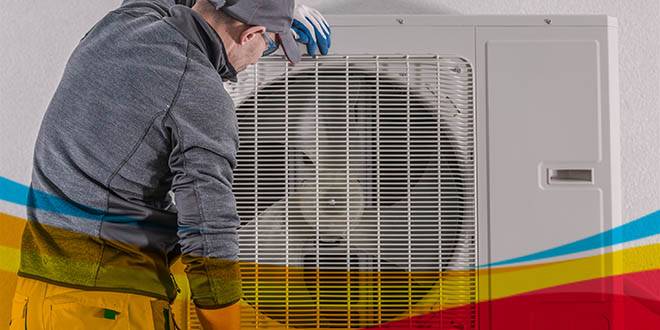
Types of Air Filters
Choosing the right air filter for your HVAC system is crucial for maintaining both indoor air quality and system efficiency. There are several types of air filters available, each with its own set of benefits and drawbacks. Here’s an overview of the most common types:
Fiberglass Filters
- Description: These are the most basic and inexpensive types of air filters, made from layered fiberglass fibers.
- Pros: Cost-effective, good for basic filtration.
- Cons: Low efficiency, needs to be replaced more frequently, not ideal for those with allergies.
Pleated Filters
- Description: Made from polyester or cotton paper, pleated filters have more surface area for trapping particles.
- Pros: More efficient than fiberglass, captures smaller particles, longer lifespan.
- Cons: Slightly more expensive, can restrict airflow if not replaced regularly.
HEPA Filters
- Description: High-Efficiency Particulate Air (HEPA) filters can remove 99.97% of particles as small as 0.3 microns.
- Pros: Highest efficiency, excellent for allergy sufferers and those with respiratory issues.
- Cons: More expensive, may require modifications to your HVAC system due to their thickness.
Washable Filters
- Description: These filters can be cleaned and reused multiple times, typically made from durable materials like aluminum.
- Pros: Eco-friendly, cost-effective in the long run.
- Cons: Lower efficiency compared to disposable filters, must be cleaned regularly to maintain performance.
Electrostatic Filters
- Description: These filters use static electricity to attract and capture particles.
- Pros: Good for capturing smaller particles, reusable if washable.
- Cons: Can be more expensive, efficiency can decrease over time.
Each type of filter has its own advantages, so it’s important to choose one that fits your specific needs and the requirements of your HVAC system. If you’re unsure which filter is best for you, consult with a professional for personalized advice.
For more details on air conditioning installations, visit our Vacaville AC Installation page.
Step-by-Step Guide to Replacing Your Air Filter
Replacing your air filter is a straightforward task that can be done with minimal tools and effort. Follow these steps to ensure your HVAC system continues to run efficiently and effectively:
Tools Needed
- A new air filter (make sure it matches the size and type recommended for your HVAC system)
- Screwdriver (if needed for access panel)
- Vacuum cleaner or a damp cloth (for cleaning the area around the filter)
Step-by-Step Instructions
- Turn Off Your HVAC System
- Before you begin, ensure your HVAC system is turned off to prevent any debris from being sucked into the system and to ensure your safety.
- Locate the Air Filter
- The air filter is typically located in the return air duct or blower compartment. If you’re unsure where it is, consult your HVAC system’s manual.
- Remove the Old Filter
- Open the access panel if necessary. Carefully slide out the old filter to avoid knocking dust and debris into the air.
- Inspect the Old Filter
- Check the old filter for excessive dirt and dust build-up. This can help you determine if you need to replace it more frequently in the future.
- Clean the Filter Area
- Use a vacuum cleaner or a damp cloth to clean the area around the filter slot. This helps remove any residual dust and keeps your system clean.
- Insert the New Filter
- Take the new filter out of its packaging and make sure it is facing the correct direction (usually indicated by an arrow showing airflow direction). Slide it into the filter slot.
- Secure the Access Panel
- If you had to remove a panel to access the filter, secure it back in place.
- Turn Your HVAC System Back On
- Once the new filter is in place, turn your HVAC system back on and enjoy cleaner air and improved system efficiency.
By following these steps, you can easily replace your air filter and ensure your HVAC system remains in top condition. Regular maintenance like this can prevent costly repairs and extend the life of your system.
For more information on keeping your air conditioning system in top shape, check out our Vacaville Air Conditioning page.
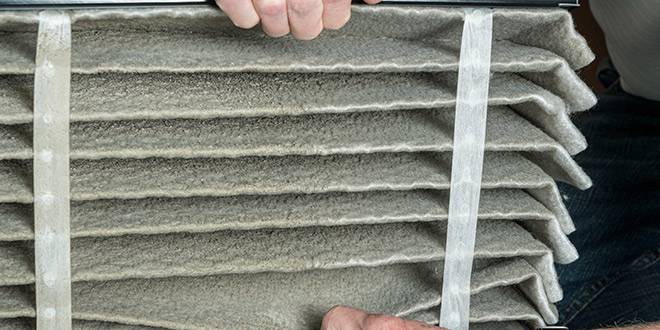
Tips for Maintaining Your HVAC System
Regular maintenance is key to ensuring your HVAC system operates efficiently and lasts for many years. Here are some essential tips to keep your system in top condition:
Regular Maintenance Practices
- Schedule Annual Professional Inspections: Having a professional HVAC technician inspect and service your system annually can catch potential issues early and keep your system running smoothly.
- Keep Vents and Registers Clean: Ensure that all air vents and registers are free from dust, dirt, and obstructions to maintain good airflow and indoor air quality.
- Monitor Thermostat Settings: Using a programmable thermostat can optimize your HVAC system’s performance, save energy, and reduce utility bills. Adjust settings according to your schedule to avoid unnecessary use.
- Check for Leaks: Periodically check for leaks in ducts, refrigerant lines, and around the system. Leaks can reduce efficiency and lead to higher energy costs.
- Keep the Outdoor Unit Clean: If you have an outdoor unit, make sure it is free from debris such as leaves, dirt, and branches. Keep at least two feet of clearance around the unit for optimal airflow.
Professional Services
- Duct Cleaning: Professional duct cleaning can remove accumulated dust and debris, improving air quality and system efficiency.
- Seasonal Tune-Ups: Schedule tune-ups before the start of the heating and cooling seasons. This ensures your system is ready to handle extreme temperatures and operates efficiently.
- Filter Replacement Services: If you prefer not to replace air filters yourself, many HVAC companies, including All Weather Heating & Air Conditioning, offer filter replacement services as part of their maintenance packages.
By following these maintenance tips, you can enhance the performance of your HVAC system, improve indoor air quality, and save on energy costs. Regular maintenance also helps in identifying minor issues before they become major problems, ensuring a comfortable living environment year-round.
For any professional HVAC maintenance needs, feel free to contact us via our Contact Us page.
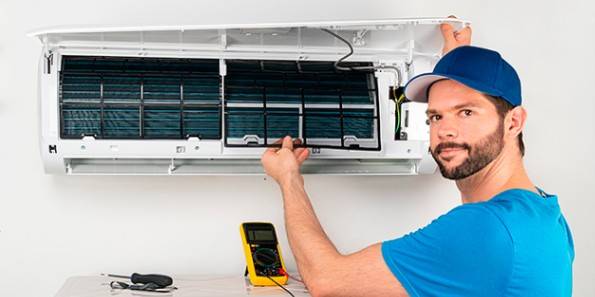
Conclusion
Regular air filter replacement is a simple yet crucial aspect of HVAC maintenance that ensures optimal performance, better indoor air quality, and cost savings. By understanding the importance of replacing your air filter, recognizing when it needs to be changed, and knowing how to do it yourself, you can maintain a healthier home and a more efficient HVAC system.
Remember, the type of air filter you choose and how often you replace it can significantly impact your system’s efficiency and the quality of air you breathe. Coupled with regular professional maintenance, these practices will keep your HVAC system running smoothly and extend its lifespan.
Call Us Today!
At All Weather Heating & Air Conditioning, we’re here to help you with all your HVAC needs, from regular maintenance to emergency repairs. Our expert technicians are dedicated to ensuring your home stays comfortable year-round. For professional assistance, special offers, or to schedule a service, visit our Vacaville Air Conditioning and Vacaville AC Repair pages.
Don’t forget to explore our Vacaville AC Installation and Vacaville AC Maintenance services for comprehensive HVAC care. For any inquiries or to book an appointment, reach out to us through our Contact Us page. Let’s work together to keep your home comfortable and your HVAC system in top shape!

